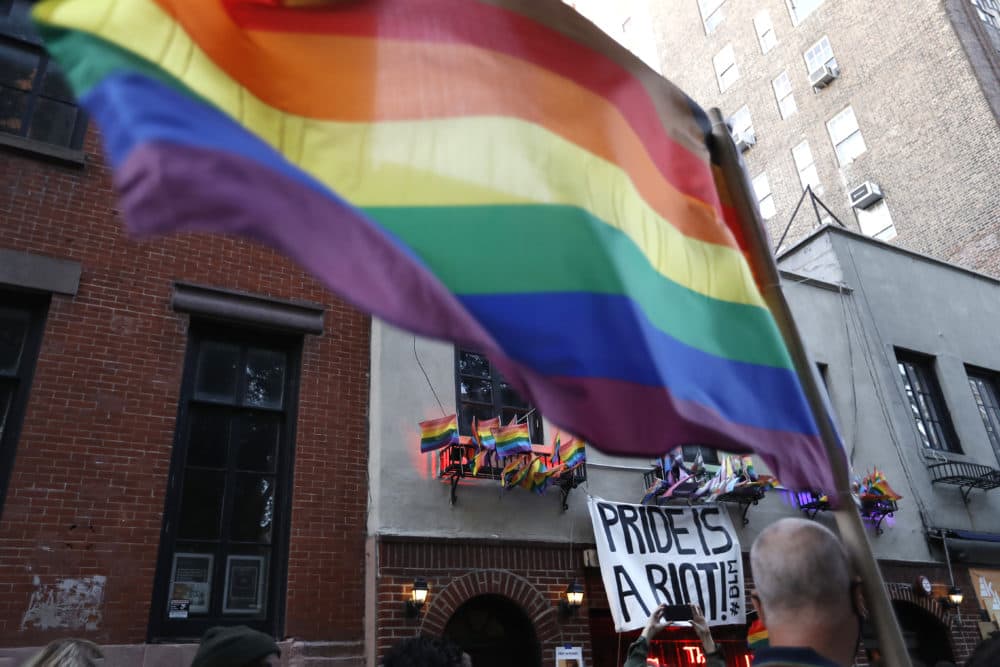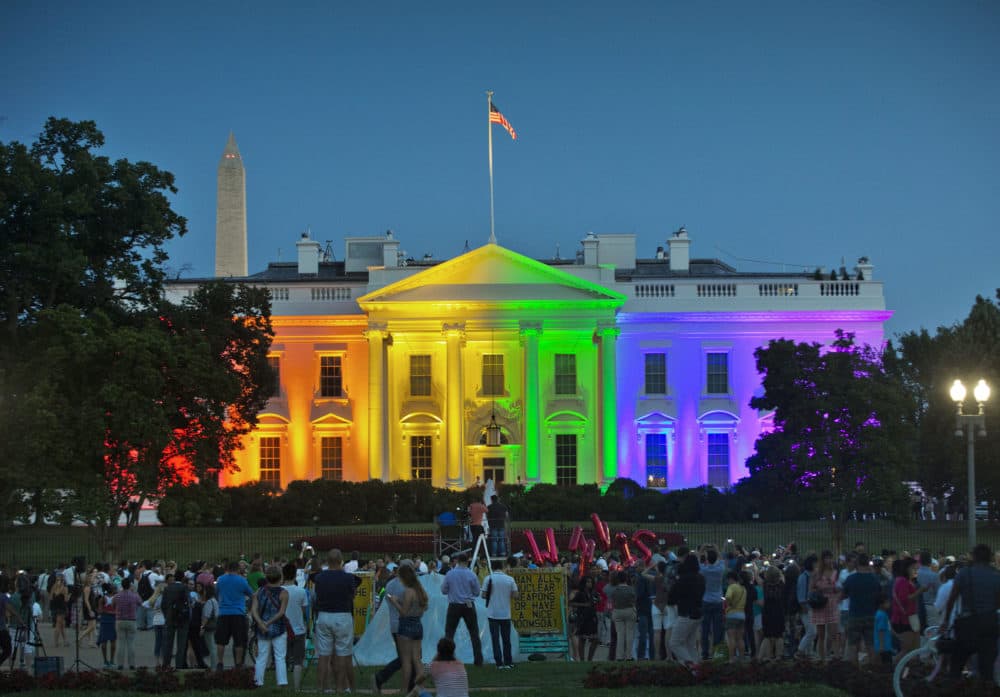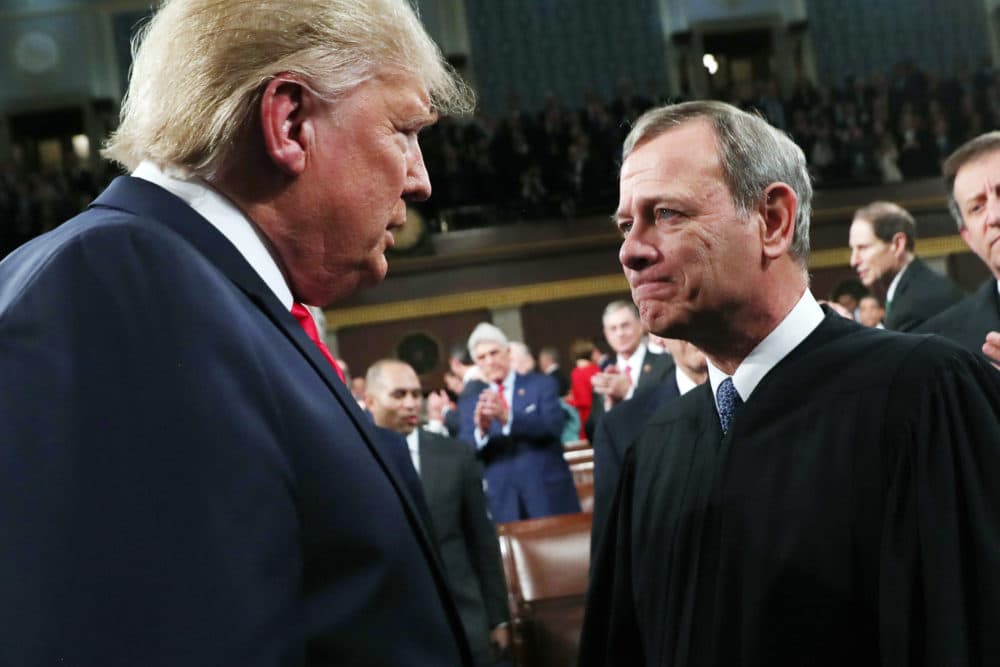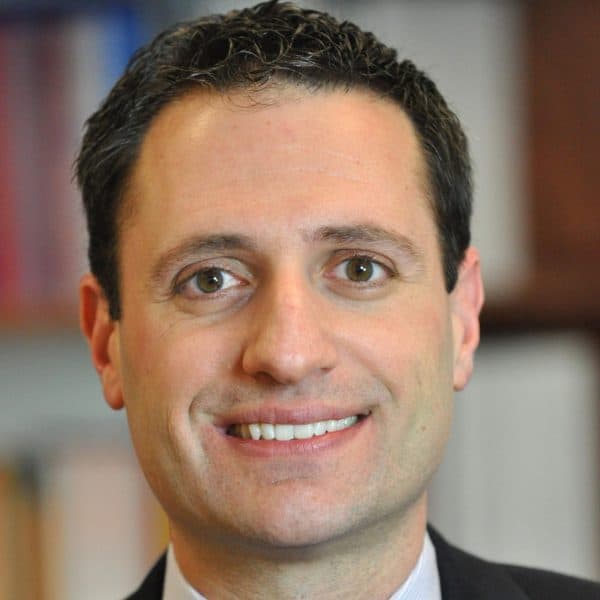Advertisement
Commentary
5 Years Ago, John Roberts Voted Against LGBTQ Rights. This Week He Stood In Favor Of Them, And That Gives Me Hope

On Friday, June 26, 2015 — just five years ago — in the landmark Obergefell case, the Supreme Court declared that marriage equality was a constitutionally-protected right for LGBTQ Americans. In that 5 to 4 decision, Chief Justice John Roberts was in the dissent.
I was on a bus from Boston to New York City when the decision came down, traveling to spend New York Pride Weekend with friends. As I received the news, happy tears rolled down my face. And my phone went haywire with texts from friends across the country, ebullient with joy and celebration. As I whipped out my computer to read the poetic and sweeping opinion of Justice Kennedy, I remember needing to assure the person next to me, who was growing concerned by the tears and frenzy on my face and phone.
Then I read the dissent by Chief Justice Roberts.
Even in that moment of victory for our movement, I felt once again the old wounds of being “less than,” “defective,” invisible, unseen and reduced. The words stung — they were antiseptic, clinical, distant and far removed from lived experience, which, as Justice Holmes wrote long ago, is the “life of the law.”

In his dissent in Obergefell, Chief Justice Roberts opined:
Five lawyers have closed the debate and enacted their own vision of marriage as a matter of constitutional law. Stealing this issue from the people will for many cast a cloud over same-sex marriage, making a dramatic social change that much more difficult to accept.
His prediction has not fared well over time: support for same-sex marriage has grown from 60% of the population in May 2015 to 67% in June 2020.
On Monday, LGBTQ advocates won their biggest victory yet. The Supreme Court affirmed that Title VII of the Civil Rights Act of 1964 protects LGBTQ Americans from workplace discrimination. In the 6 to 3 decision, written by Neil Gorsuch, there is much to celebrate -- not only legal protection for LGBTQ persons in more than 20 states where, until Monday morning, they could be fired simply by virtue of being LGBTQ, but also a sense of collective relief; a Court whose membership has changed, and shifted markedly to the right since 2015, seems less likely to roll-back LGBTQ protections that have been hard-won.
Even in that moment of victory for our movement, I felt once again the old wounds of being “less than,” “defective,” invisible, unseen and reduced.
And this time, the Chief Justice broke ranks with his conservative colleagues to vote in favor of protecting LGBTQ people.
The nation now is rightly focused, not only on LGBTQ rights, but on how far we — as a nation — have to go when it comes to equality and justice for Black Americans and people of color. “Today reminds us that progress might be slow. It might take decades,” President Obama tweeted, upon news of the decision. “But no matter what things might look like today, it’s always possible.”
Indeed, I am heartened by where Chief Justice Roberts landed this time.
Some will asseverate, of course, that there was no shift at all. They will argue that Obergefell was a case about Constitutional interpretation and Monday’s Bostock decision was one of statutory interpretation — and so it is inapt to draw comparisons between the two.
Others will spin Roberts’ vote differently. They will view Roberts’ shift as part of his reported effort to ensure that the Court retains its legitimacy by avoiding a drastic lurch to the right on contentious social issues of the day.
Still others will contend that it was Gorsuch’s strict fidelity to textualism, as opposed to Kennedy’s more sweeping and poetic language, that won Roberts’ to side with LGBTQ advocates this time around.

Of course, any of these interpretations may be right. And all may be wrong.
But let me propose an entirely different, perhaps more salubrious, explanation.
Maybe, just maybe, Chief Justice Roberts has changed. And learned.
Maybe, in the five years since Obergefell, as the open presence of LGBTQ persons has grown enormously — in media, politics, business, sports, journalism, and in our families — maybe Roberts has softened just a bit, to see us less as a category or class or rubric of legal analysis and more as an individual like him, with fears, hopes, needs, aspirations, and yes, expectations of equal dignity and respect under the law.
Maybe his experience — and our collective experience as a society — has influenced the “life of the law” as Justice Holmes so wisely said more than a century ago.
[M]aybe Roberts has softened just a bit, to see us ... more as an individual like him, with fears, hopes, needs, aspirations, and yes, expectations of equal dignity and respect under the law.
That’s how I will choose to see this moment. It’s a real-life example that people — even Supreme Court justices — can grow, learn, change, listen and adapt.
And at this moment in our history, when white America is confronting its own racism, explicit, implicit — but never benign — it’s important to believe that we can change; and that if we allow ourselves to be open, we can grow. In moments when I am crestfallen by my own racism and privilege, saddened and angered by the blindness of so many around me, made to feel despondent and hopeless, Roberts’ decision has given me hope.
Perhaps his joining the majority is about something more than legal analysis, parsing legislative intent, judicial philosophy, or divining the meaning of words written in 1964 or in 1789. Perhaps it's about the capacity for a fundamental internal change, and the inherent dignity of LGBTQ persons.
That change, as much as the decision itself, gives me hope for myself and for the nation.
It makes me think we can do the work to learn from our past blind spots, and advance the goal of liberty and justice for all.
